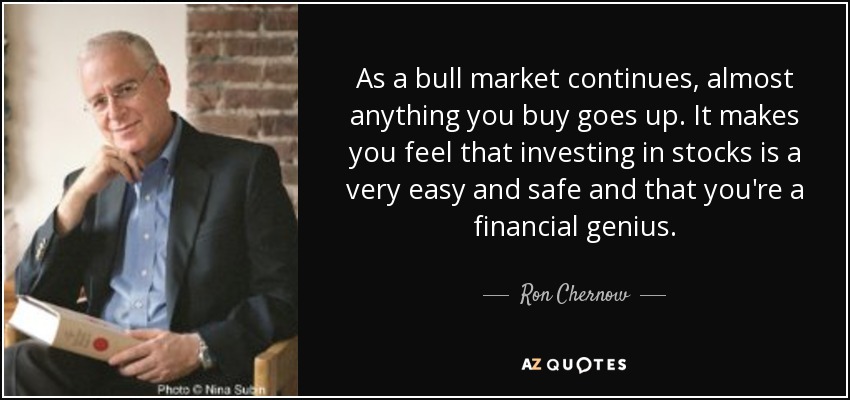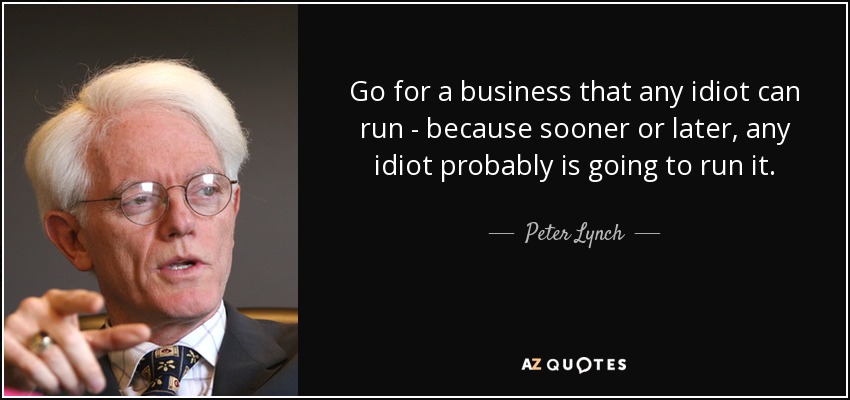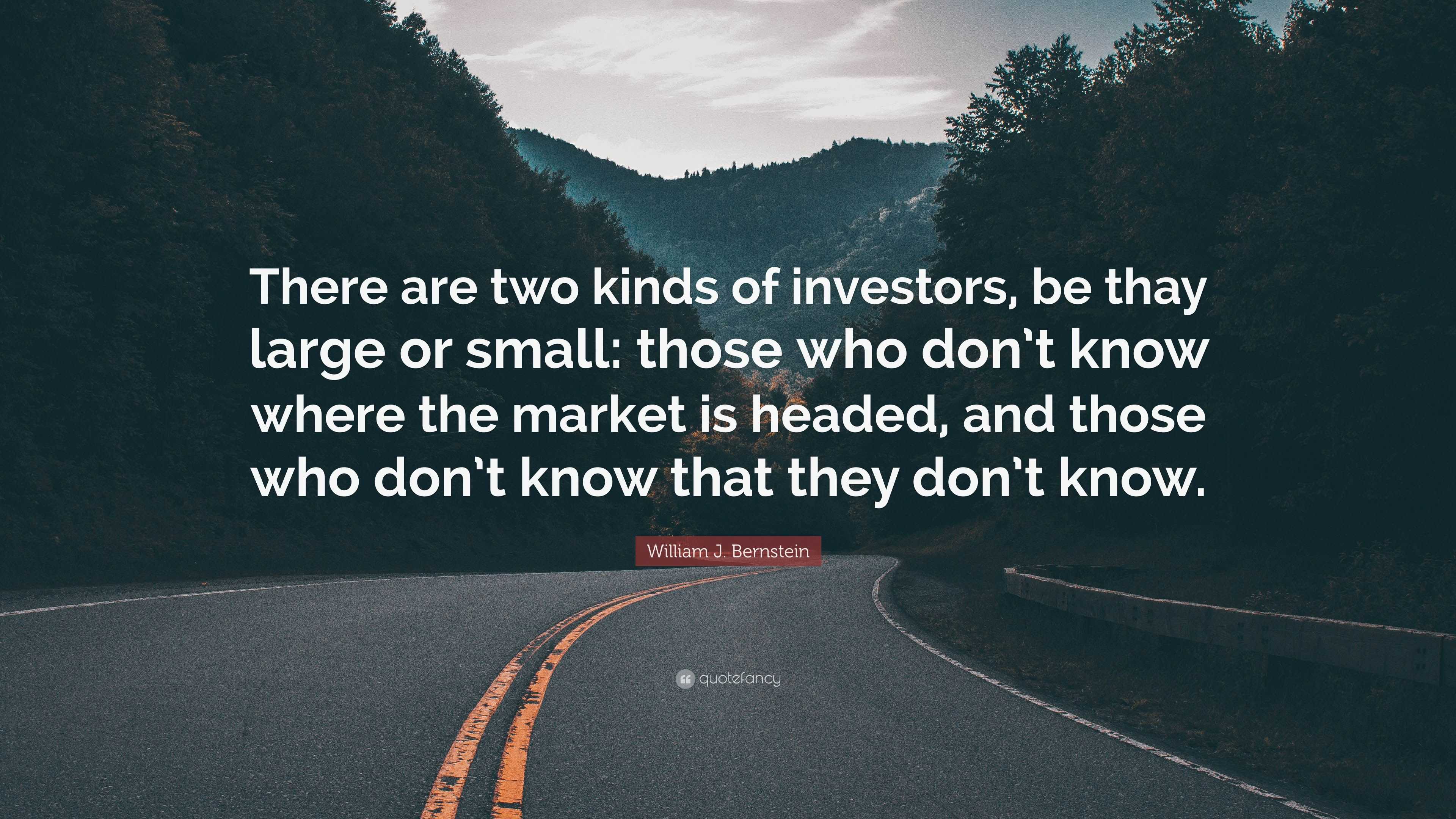

Investing at the Peak: 7 Millionaire Perspectives
This blog post is dedicated to my high school English teacher Mrs. Smith. You see, I was not a gifted writer growing up; preferring always the concrete worlds of math, science, economics and, if we're being honest, PE. Those subjects had correct & incorrect answers based on observed laws of operation. Memorize the laws inherent and the class was over.
Not so in Mrs. Smith's senior year English Literature and Comprehension, where we were forced to grapple with mythology, poetry, theater... even the Bible. In a particularly timeless lesson (I say so because it stuck with me despite valiant attempts to never listen in English class) she taught us forevermore how to analyze poetry:
a) What does it say?
b) What does it mean?
c) What does it mean to me?
While you can never be wrong on question C, Mrs. Smith said that afternoon, you sure as heck could be wrong about A & B. That year I went on to prove her point many times over, inaccurately reading just about every piece of poetry that ran across my student desk (a talent I largely retain to this day).
But seriously, Mrs. Smith changed a lot for me that day; I eventually developed first the skill, then the desire and finally the platform to share my own ideas to the benefit of others. And on this occasion I'd like to borrow her format to help unpack a few wise words from around the financial world.
Are we in a market bubble?
We all fear the heat of the market: the 2nd Longest Bull Market in US History, which is poised to crack the 10 year mark this June. The sheer length of more-or-less unbridled growth (defined informally as a period of increasing stock market pricing without a drop of 20% or more) is rivaled only by The Great Expansion of the 1990s.
(Images courtesy of The Visual Capitalist)
I know what you're thinking...
It's not smart to invest in an overheated market: it's bound to drop! I don't want to invest into a top-heavy market and risk losing half of my money overnight!
I hear you. It is undoubtedly bad strategy to invest any amount of money into a market that is about to crash. And yet, people are still investing; professional investors are still investing, even as they are publicly cautioning fellow investors to prepare for the worst.
I thought it would benefit us all to take a moment and absorb some wise words of those who faced white-hot markets in the past. Enjoy!
1) Paul Moore

b) What does he mean?
Let's get the basic definitions out the way early: when people say they are worried about market crashes, what they are worried about is being unable to sell an asset in the short-term for more than they paid for it. Speculation is buying a thing, not because of its inherent value, but because of the expectation of being able to sell it to another speculator for a higher price.
Investing, by contrast, has built-in securities that protect the principle invested in the deal. Whereas the speculator banks on things outside his control (like luck & the greed of others) to generate a profit, the investor makes money by careful consideration of the factors at play and sufficient capital reserves to weather the storm of uncertain & drastic market corrections.
c) What does it mean to me?
In this context, I take Paul's words to be non-judgmental and even-headed. Is speculating bad? Is it unwise? Amoral? Certainly not! Speculation has its place in an investor's toolkit, and in specific, well-understood situations speculating has made a lot of people super rich.
Just understand going in that assuming a thing will go up in value over time (especially quickly enough that you justify over-leveraging to purchase it) is exactly the thinking that knocks people out of the game for good.
2) Ron Chernow
b) What does he mean?
It's often said in investing circles that a bull market is "a rising tide which raises all boats;" both intelligent investors (working off sound fundamentals) and money-crazed speculators (working off flawed or outright incorrect assumptions) see gains in their portfolios in equal measure during strong bull markets. This creates an obvious problem: which of the markets biggest winners are there because of good judgement, and who just got lucky?
c) What does it mean to me?
Here is my big problem with financial advice being doled out today: just about all of it has been colored in by a decade of high returns. In short, particularly over the last 5 years or so, just about every investment into stocks & real estate have made money. Thus we have an environment in which everyone in the market considers him- or herself "good at this."
While investors toil away in their research and personal vetting processes, speculators cite their impressive track record & headily pour more fuel on the fire, typically leveraging bank money at high margins or by rifling through the pockets of friends & family.
Unfortunately there is really no knowing the difference between the two until the next market crash. Be careful who you trust out there!
3) Warren Buffett
b) What does he mean?
To summarize what we've said so far: investors buy inherent value, speculators buy on assumption of future growth. Let's take the next step in logic: investors buy to hold, speculators buy only to turn around & sell.
Mr. Buffett is calling attention to those who attempt to buy & sell individual stocks in an endeavor to outperform the general index; to "beat" the market by out-earning their peers who put their money into an index fund and aim simply to match market returns.
c) What does it mean to me?
The name of the game here is the hold period. Another of Buffett's popular idioms "my favorite hold period is forever." Traders, by contrast, want to get rid of the stock essentially as fast as possible, and are pretty afraid they'll be the one left holding the bag in a market crash if they can't find "the greater fool" to sell to. Pump & dump.
The wisdom here is to only buy stocks, real estate, businesses, etc. you actually wish to own for years and decades. And for all of the noise of get-rich-quick schemers' "easy money" ventures, investors who hold their assets realize incredible gains almost by default over the long-haul..
4) Peter Lynch
b) What does he mean?
Invest in what you know, and keep it simple. The manager of the best-performing mutual fund in the world in the 80s and 90s was speaking of the underlying companies of the stocks he traded. To survive in today's hyper-competitive world businesses must make sense; their mission & vision should be well-articulated, their customer base motivated to buy, and their business model logical & straightforward.
As an investor, you have zero control over the long-term implications of the economy, population flux & government intervention, and in much the same way Lynch (as a fund manager rather than the business owner) had little say in vetting the competency of employees, middle managers or whomever may step into corporate leadership down the road.
Invest only in businesses and other assets that make so much sense on paper that you remain, to some extent, insulated from worst-case eventualities.
c) What does it mean to me?
When a hot housing market pinches off the inventory and forces prices up past the point of what is justified by the rents, investors are generally the first to notice it happening. Spurred by public pressure at best (and an error-less investing career at worse), speculators are bewitched into buying not based on the fundamentals of the deal but by the assumption that prices will continue to climb.
Know the pitfalls and be diligent: stick to your buying criteria and plan for the worse, because if you hold it long enough "the worst" will happen a few times over.
5) Jesse Livermore
b) What does he mean?
An argument made as long as the markets have existed: "it's not about timing the market, it's about time in the market." The sexy money is made by those who can combine expert opinion, insider information & crystal ball foretellings, and out-perform the competition... but that is a sucker's game that nobody can win forever. Smart money, professional money, stays parked in good deals made on good companies that will continue to grow over an investing life cycle.
By his own admission, Mr. Livermore's genius came much more in holding his positions than in any moves he made. Leave well enough alone, and trust you bought it right the first time.
c) What does it mean to me?
The statements that "the market is super hot right now" and "there are no good deals out there" are not mutually exclusive. "The market is super hot right now" and "I have stretch my criteria & overpay to buy something" are not mutually exclusive, either. We're talking about investing here: not assuming the value will increase, but based on its current evaluation.
Now more than ever, stick to your guns & buy right. Sure it's more work: you have to analyze more properties that don't ultimately work for you and stretch your creativity to find more deals to analyze, but that's no excuse to stop looking for deals.
6) William J Bernstein
b) What does he mean?
This one is actually quite straightforward: nobody has the crystal ball, and nobody knows with certainty where things are headed the medium- and long-term. Statically speaking, some people will be right; there are enough people paying attention that every conceivable outcome will be predicted. Many have correctly predicted each of the last few market cycles (and they'll be the first to tell you about that fact), but that has no bearing on their advice going forward. "Past performance is not indicative of future results" as they say...
c) What does it mean to me?
You should not listen to me because I'm super smart, charismatic or dashingly handsome (no corrections, please!), nor because I may have insider information about the market or access to off-market deals. As a Realtor, it is my job to know the inventory, people around town who can help you get deals done, and the state & local laws applicable to buying & selling real estate in Arizona; of course I know more about all these things than your average new investor.
But concerning the short-term safety of your next investment, I'm really just guessing. In truth, it's very much my job as a Realtor to tell you where my expertise stops: including & especially timing macro-economic cycles. Nobody knows, and I'm actually pretty happy about that; you don't need to know, just to do the best you can with what you have.
Get into the game, make informed decisions and learn as you go; it's the best any millionaire can hope for.
7) Scott Trench

b) What does he mean?
I literally could not have said it better if I tried (hence the picture quote). As the President of BiggerPockets has been known to put it: if you buy it right and hold it long enough, you're effectively guaranteed to make money over the long-term. That promise is baked into the very concept of an asset: something which increases in value (outpacing inflation) over time due to its own inherent value to the consumer.
(Liquid, Investible Cash Savings) x (Some ROI Multiple) x (Time) = all you need to know.
c) What does it mean to me?
We end right back where we started: basic definitions.
Investors do not buy on assumptions. Investors do not buy based on emotion. Investors don't hope they'll get lucky and find the next home run deal, which their peers are unable find.
Investors are patient. They have a system, a criteria, and they stick to it. They expand it over time, sure; as their skills, geographic market knowledge & access to capital expands over an investing career they can afford to take on greater risk in the name of chasing higher returns. But they only get to that point by staying consistent and remaining in the game for long enough to earn that flexibility.
In Closing...
If we are in a top-heavy market bound for immediate & brutal collapse, you have no control over that. If this bull market continues another decade, ushering in one of the longest & most profound periods of economic growth in World History (another subject I sucked at in school...) you have no control over that, either. It would be great to know but even one person knowing & capitalizing on that knowledge (&, presumably, telling everyone who will listen of their gift) would by itself totally change the investing landscape in ways that are themselves also impossible to predict.
Your goal is not to know, it's to trust. Never invest money you cannot afford to lose, but also know not putting your money to work is a guarantee you'll lose. It's about the only guarantee that's out there.











Comments